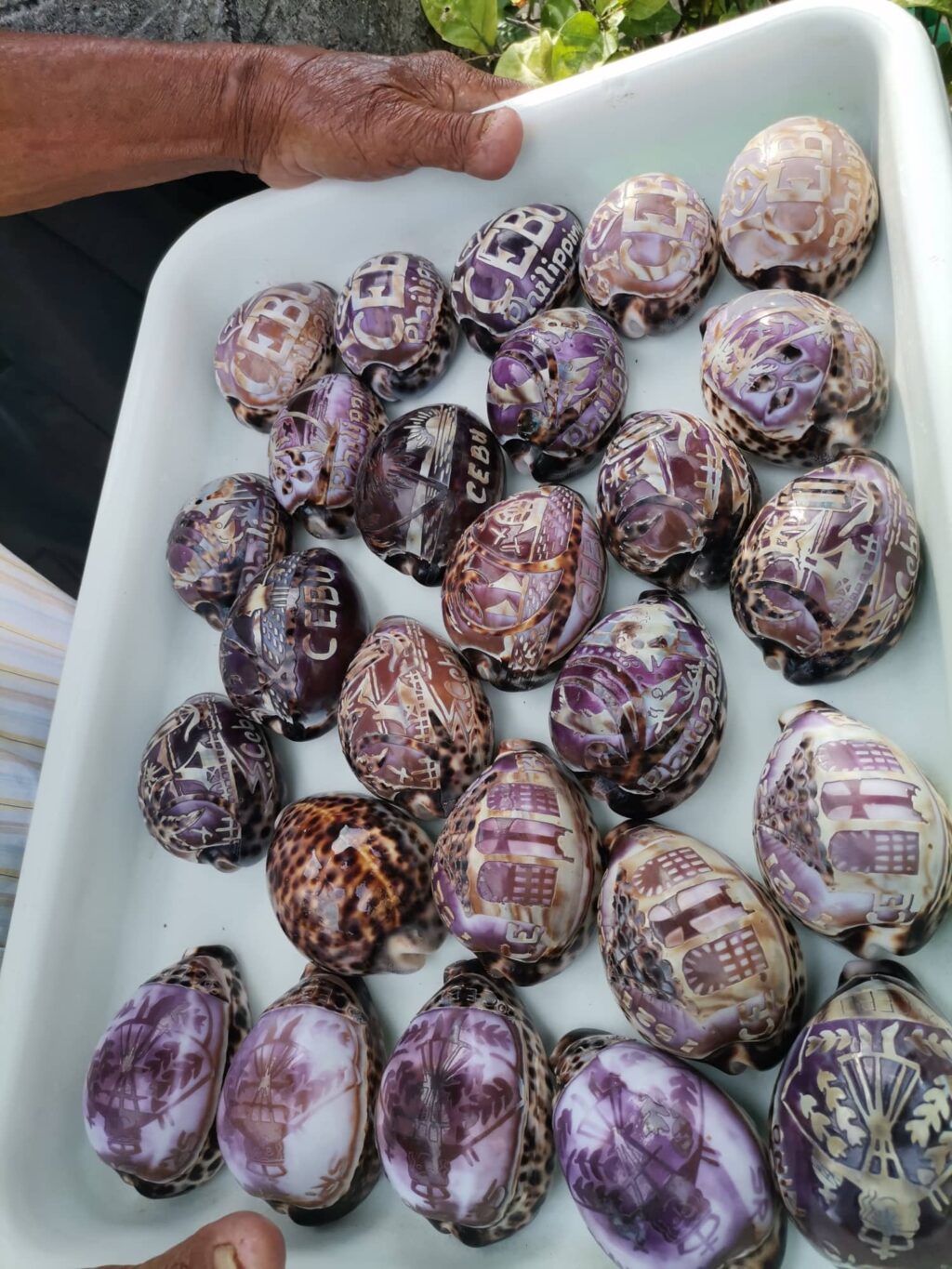
The hand-crafted shells of tatay Gaudioso Cabaral in Cebu City. CDN Digital photo | Mary Godinez, CTU Intern
CEBU CITY, Philippines— “Art is not what you see, but what you make others see.”
The Queen City of the South, Cebu City, is home to renowned skilled artisans, who create exquisite crafts reflecting the beauty of the place, culture, and history of the region.
One particularly renowned form of art in Cebu City is shell crafting, and among the artisans who make intricate hand-crafted shells for a living is Gaudioso Cabaral, a 75-year-old man from Barangay Suba San Nicolas.
READ: Shells crafted by tatay are perfect souvenirs for Cebu visitors
For Tatay Gaudioso, the art of shell crafting is not merely a means of livelihood, it is a cherished legacy passed down from generation to generation.
In the past, their family ancestors made hand-crafted shells for a living. His father also used to sell crafted shells to US Navy ships docked at Cebu City ports as souvenirs.
Keeping tradition alive
Over the past 50 years, Gaudioso, along with his two sons, Romeo Cabaral, 40, and Ariel Cabaral, 30, have carried the responsibility of keeping this time-honored tradition alive.
Using their artistic talents, the ordinary shell is transformed through intricate craftsmanship, drawing inspiration from the abundant pristine beaches around the Philippine Islands, diverse marine life, and the people’s faith.
Each design pays homage to the rich culture of Cebu, making them perfect keepsakes for visitors who wish to take home a piece of the city.
How are these hand-crafted shells made?
Creating these stunning art pieces takes up to three business days to complete, with each shell requiring one hour to make.
The cowrie shells are meticulously done using a closely guarded family method that has been passed down through generations.
Once the shells are done, Gaudioso takes the finished products outside the Basilica Minore del Santo Niño de Cebu, where he sells these hand-crafted shells as one-of-a-kind mementos for ₱75 (just $1.33 based on current exchange rate).
Sometimes he manages to sell three to four shells, but there are also times when sales are low. In those instances, he returns home with a heavy heart.
“Kung naay human dae mao akoang e-ari diri…Kung wala’y [kita], wala. Stambay ra,” he said.
(If there are finished products, that’s what I come here for. If I am not able to sell, I just come to pass time.)
Most of Gaudioso’s customers are local tourists, people from Manila, for example, and sometimes foreigners who want to bring a piece of Cebu back home with them.
Only a handful left
The shells used in their craft are sourced from Bohol, Leyte, and Samar, and are delivered to shell stockholders in Cebu.
Unfortunately, only a handful of individuals in Tatay Gaudioso’s neighborhood continue to craft shells for a living.
Tatay Gaudioso. CDN Digital photo | Mary Godinez
“Sa unang panahon [daghan]. Pero karon wala na. Nangamatay naman sila. Sa among lugar, sa Pasil sa barangay Suba, kami nalang [nagpadayun],” he shared.
(Before, there were a lot of us who made hand-crafted shells. Now, just a little of us are left. Some of them have passed away. In our place in Pasil, Barangay Suba, It’s just us left.)
If you happen to be interested in Tatay Gaudioso’s art, he and his family also offer customized designs, such as carving names into the shells or creating other personalized art pieces upon customer request.
/bmjo

